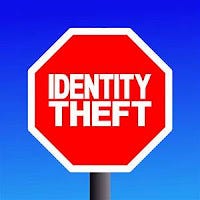Identity Theft Protection

If you have ever had your identity stolen or know someone who has, you know its a lot of work to unravel what happened and clean up the mess that's left behind in your credit history. Identity thieves move quickly and by the time you figure out what happened, they are long gone and you are left with the credit card bill.
Credit card companies, banks and other financial institutions have gotten smarter with verification of identity and other protections, but criminals are always ahead of the game.
It's best to protect yourself and make sure it never happens to you. There are several things you can do to protect your identity, and many of them can be done at little or no cost.
Tips for protecting your identity:
If you have an account at a major bank like Wells Fargo or Chase, they now offer free credit monitoring and post an updated credit score weekly or monthly; any changes in your credit report show up there as well with alerts, so you can see inquiries, new accounts added or other changes to your credit file in a timely manner; you can also sign up for a service like LifeLock, TrustedId or any of a variety of other credit monitoring programs - each of the major credit bureaus has one if you are interested in that option.
Put a fraud alert on your credit file; this should result in a phone call to you with some challenge questions based on your credit history before a new account can be setup in your name, but not all financial institutions remember to do this; these are free and easy to do online at each of the three major credit bureaus and you don't have to be a victim of fraud to use them:
Lock or "freeze" your credit; this will make it impossible for anyone to run your credit or open an account in your name, but it can be a hassle to manage if you are planning on opening new credit accounts, renting an apartment, buying or leasing a car, or refinancing (pretty much everything that requires a credit check) - this service is offered free by all three major credit bureaus and you will need to do it at each one to fully protect yourself - you also don't need to be a victim of fraud to use these; they can be unlocked for a period of time if necessary to complete a transaction and then re-locked again:
Be careful with old tax returns, loan applications and other documents that include your social security number and other personal information; always shred when disposing of these documents
Be alert to "phishing" attacks either by phone, mail or email - urgency should be a warning sign that something is not right
Watch your paper mail and shred credit card offers that you don't need
Use credit cards versus debit cards for better fraud protection, especially for big ticket items and set alerts in your mobile app to alert you about unusual credit card or debit card activity (like gas station charges, charges over a certain dollar amount or international charges)
Be careful where you store your credit card data online; using PayPal or other third party payment service can be more secure when making online payments
I hope you find this post useful as you chart your personal financial course and Build a Financial Fortress in 2020.
To see all my books on investing and leadership, click here.
Disclaimer: I use affiliate links where I get paid a small amount if you buy the service or product. This helps support my blog.



